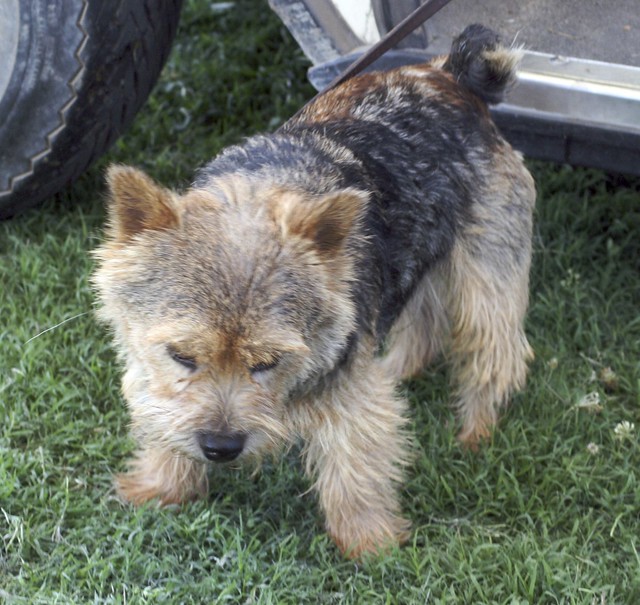Photograph of Norwich Terrier, Castle-Bar Canasta, aka "Spike".
(Photo credit: Wikipedia)
If you are in the market for a canine companion you know there are many different breeds that you can choose from. If you have been doing your research, you may have seen Norwich Terriers for Sale. These can be fantastic companions but you do need to make sure it is the right breed for you. Here is what you need to know.
If you want a dog that stands out in a crowd as being uncommon, there are some breeds that are better known than others. Labs, for example, are very common and easily recognizable. Other breeds of a similar size are less common. You may find that if you are walking one, people will stop and ask you questions about your canine companion.
If you are looking for a quiet and easygoing dog, you may want to look at a different breed. If you want a dog that has a lot of energy and will keep you entertained and on your feet, this can be a fantastic companion. It can be worthwhile to speak to other owners of this breed. Then you will be able to tell if the energy level is right for you.
If you want a small, compact canine, this can be a fantastic choice. They only tend to weigh ten to twelve pounds when fully grown. This can be fantastic for someone who lives in a small apartment or house. It is also great for individuals who want to travel on a plane or other type of transport and bring their dog along.
Once you have done your research and have decided that this is the kind of canine you want you can begin to look for a breeder. Keep in mind that it can be somewhat hard to find pups from time to time. It may mean that you need to look for a bit before you find a breeder with available pups.
Any time you are considering a specific breeder, it can be a good idea to ask to view the puppies. There are a number of reasons for this. You want to make sure that the parents are in good health, that the living environment is clean, and that the puppies are being introduced to as many new situations as possible. This can mean you end up with a more well-rounded and healthier dog when you do choose one.
Once you have decided on a breeder, it can be a good idea to view the pups in person. You can see their individual personalities and choose one that will mesh well with your family. Then, you can feel confident that your bundle of fur will bring you joy for years to come.
About the Author: by Beryl Dalton
Read more about How To Tell If Norwich Terriers For Sale Are The Right Dogs For You.
|


